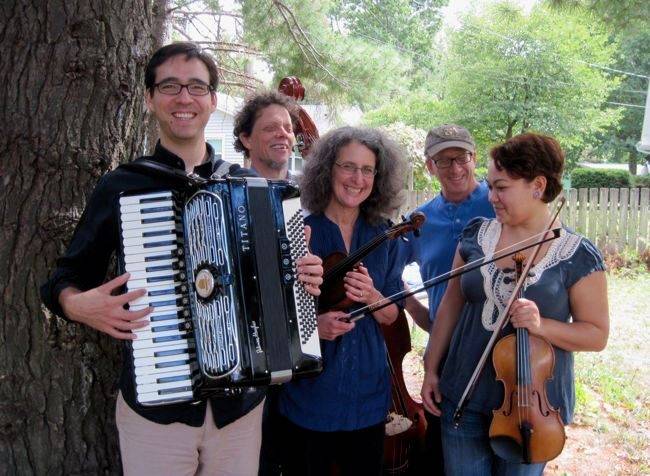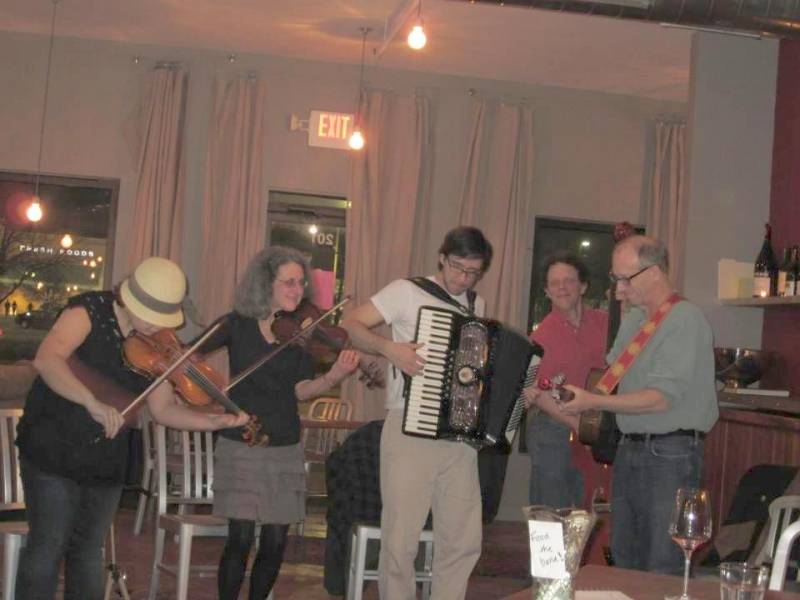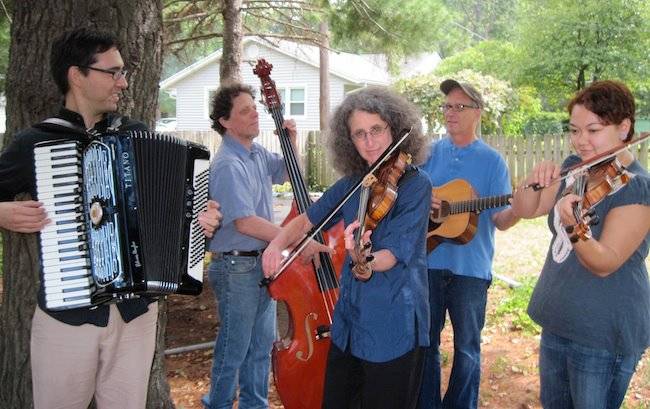 As a pattern of speech, “Don’t ask,” is clearly a distinctive manner of expression. Growing up, my family and friends adopted a very Jewish form of answering a question with a response designed to pique the interest of the questioner. If asked, “How are you?” the response may be something like, “Don’t ask,” with the expectation that the questioner would indeed ask. You would then have the opportunity to relay ALL of the unbelievably bad, horrible, and tragic things that have occurred, real or imagined, and often ad nauseum. Over time, the expression, “Don’t ask,” would become synonymous with the idea of a harried life. So how did a group of local musicians come up with the name, Don’t Ask, for their band? It has nothing to do with “Don’t ask, don’t tell” according to band member Frances Harris. She says it is the “appropriate response when someone asks you how you are (especially if you are a person of a certain age).” She says it’s even better when pronounced with a bit of a Yiddish accent, as in dunt esk.
As a pattern of speech, “Don’t ask,” is clearly a distinctive manner of expression. Growing up, my family and friends adopted a very Jewish form of answering a question with a response designed to pique the interest of the questioner. If asked, “How are you?” the response may be something like, “Don’t ask,” with the expectation that the questioner would indeed ask. You would then have the opportunity to relay ALL of the unbelievably bad, horrible, and tragic things that have occurred, real or imagined, and often ad nauseum. Over time, the expression, “Don’t ask,” would become synonymous with the idea of a harried life. So how did a group of local musicians come up with the name, Don’t Ask, for their band? It has nothing to do with “Don’t ask, don’t tell” according to band member Frances Harris. She says it is the “appropriate response when someone asks you how you are (especially if you are a person of a certain age).” She says it’s even better when pronounced with a bit of a Yiddish accent, as in dunt esk.
Playing in and around the Champaign-Urbana area, Don’t Ask plays klezmer, a form of Eastern European music very popular in the early twentieth century, but having origins much older than that. Klezmer music is secular, but with Jewish overtones. The word klezmer refers to a musician, usually itinerant, who would travel from town to town to play at weddings and other celebrations. So, klezmer music is usually a celebratory music played for dancing. That is the tradition that Don’t Ask embraces.
The band consists of five members, all accomplished musicians from the C-U area.

Frances Harris, a librarian at University Laboratory High School, and Professor of Library Administration at University Library, plays violin and is credited with starting the band along with Michael Shapiro, a guitar player and local musician with roots in contemporary and old time music, notably with the Peppermill String Band.
After a show in which both Harris and Shapiro were playing, Mike Meadows, a local musician and singer-songwriter, heard them playing a klezmer tune. He liked what he heard. He asked the bassist if he could borrow his bass and play along. The next day, Michael Shapiro called and asked if he wanted to join the group.
Next, Shapiro ran into violinist Sara Sasaki, a music instructor at The Conservatory of Central Illinois, and Orchestra Manager of the East Central Illinois Youth Orchestra, Champaign-Urbana Symphony Orchestra, The Prairie Ensemble, Danville Symphony Orchestra, and the Heartland Festival Orchestra. Sara has been hailed as one of the finest musicians around. He asked Sara to stop by and check out the band, which would be playing that weekend at Strawberry Fields in Urbana. Sara says, “I loved the band, sat in with them on a few tunes, and when I moved to Urbana in September I became a member of the band!”
Next to join was jazz musician, Chris Reyman. He is a prolific musician who plays piano, drums, as well as accordion with Don’t Ask, an instrument he learned to play only a couple of years ago.
The influences of the musicians in Don’t Ask are varied. Shapiro, was drawn to guitar oriented music early on. He points to Paul Simon and John Renbourn as early influences. Harris says that her early influences have little to do with the music she plays today. “I totally imprinted on the Beatles, and also The Band, and Simon and Garfunkel, etc.” Meadows points to Bob Dylan and Randy Newman as early influences, but was drawn to the music he was hearing on the radio in high school: Frank Zappa, Captain Beefheart, Bob Dylan, Phil Ochs, and John Koerner to name a few. Sasaki nods to her father, Ray Sasaki, a longtime teacher of trumpet at the University of Illinois as her first influence, but adds Sarah Chang, Joshua Bell, Sarah Vaughan, and Stefane Grapelli as well. Reyman also acknowledges his father, Randy Reyman, Director of Jazz Activities and Professor of Trumpet at Millikin University in Decatur, as a huge influence.
As you can guess from the origins of klezmer, the music tends to be good-time, feel-good, dance music. You can usually catch Harris’ husband, Mitch, leading a dance or two at most of their performances.
If you’ve had a hard week, or a bad day, or just want something to do that will put a smile on your face and get your toes tapping, catch a performance of Don’t Ask. They’ll be playing at a venue near you.








